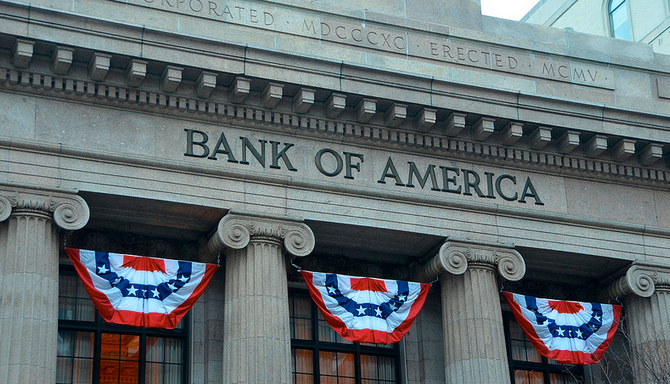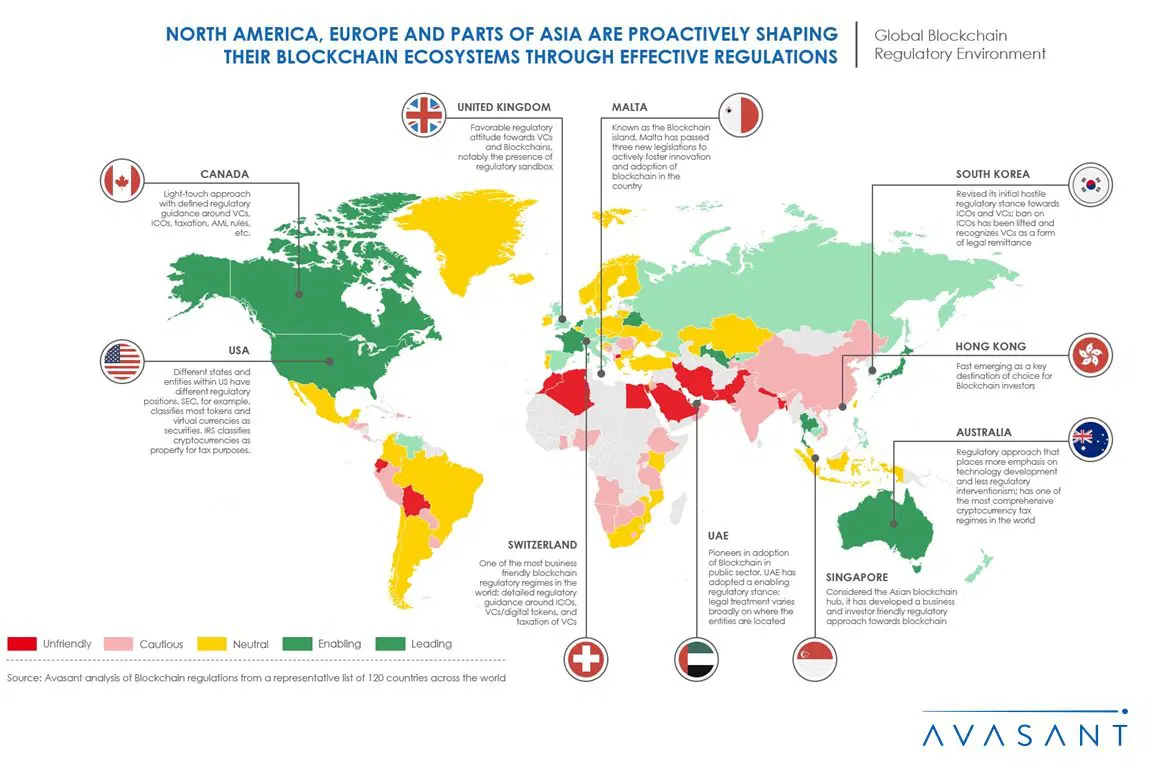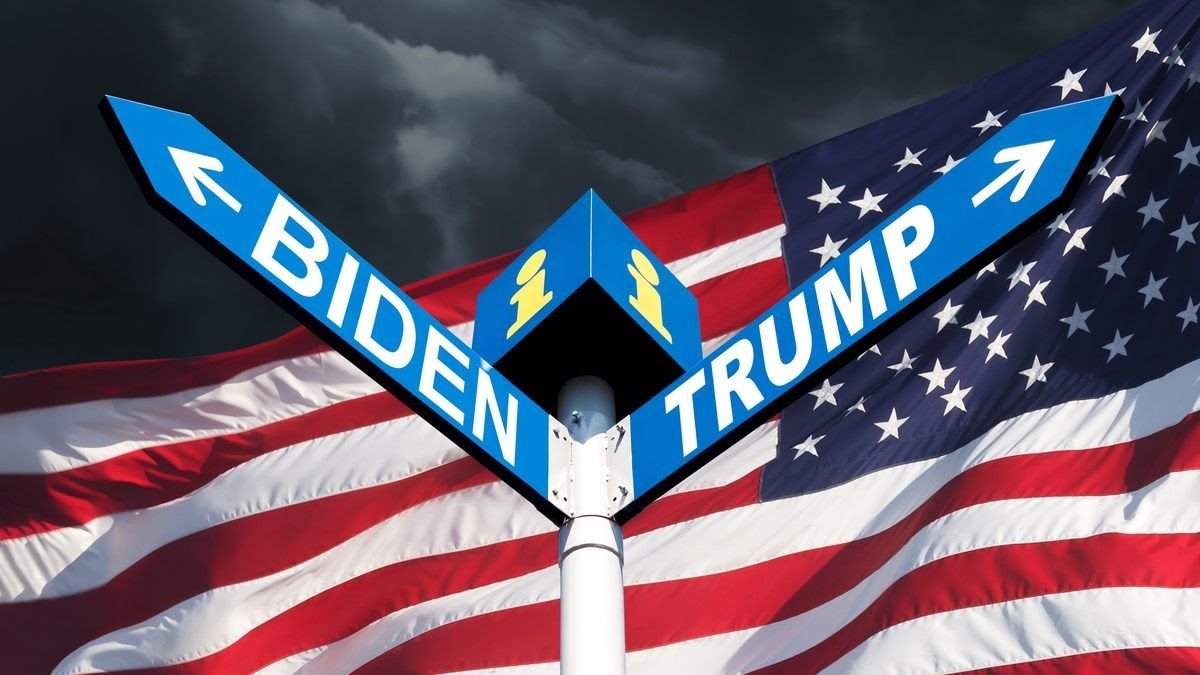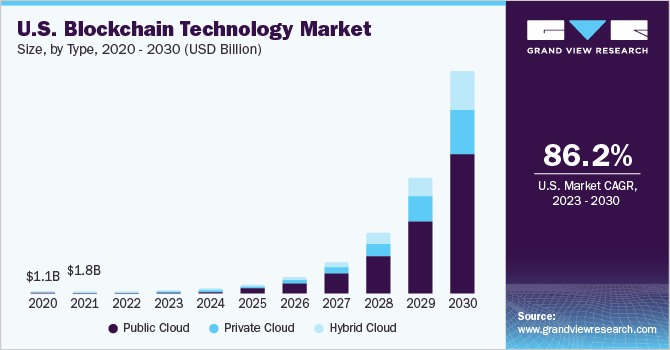Enhancing American Democracy: How Could the Blockchain Improve the USA Elections?
Blockchain technology can be a crucial ally in improving the USA elections, offering enhanced security, transparency, and streamlined processes. Its unique properties enable secure, verifiable voting, deterring fraud and protecting the integrity of every ballot cast. Without fluff or overhyped promises, this article lays out “how could the blockchain improve the USA elections”, examining tangible successes and the road ahead for American democracy, from seamless voter registration to real-time results verification.
Key Takeaways
- Blockchain technology offers a secure, transparent, and efficient way to reinvent the US voting system by mitigating issues related to voter registry tampering, ensuring immutable ballot casting, and providing real-time transparency in elections.
- The introduction of blockchain can modernize vote counting and results verification, enabling accelerated and accurate tallying, a transparent electoral process, and decentralized audit trails for increased election integrity and trust.
- Despite the potential benefits, the adoption of blockchain in US elections faces challenges such as scalability, the need for internet connectivity and device availability, and a requirement for updated legal and regulatory frameworks.
Reinventing the Voting Infrastructure

Blockchain technology offers a transformative solution for secure and accessible elections, emerging as a potential game-changer for how Americans cast their ballots. The current voting systems are fraught with challenges, including outdated infrastructure, vulnerability to cyberattacks, and issues of voter fraud. Blockchain’s decentralized and tamper-proof nature can address these challenges, ensuring that the electoral process is secure, transparent, and efficient.
Electoral integrity is crucial for maintaining voter trust. Blockchain enhances this by maintaining the integrity of transaction data and providing a utility for correcting voting errors and attacks. This technology not only upholds the principles of free and fair elections but also ensures transparency and accountability, which are the cornerstones of democratic governance. By integrating blockchain, we can create a voting system that is resilient, transparent, and trustworthy.
The successful implementation of blockchain in elections depends on the political will and technological understanding among public officials. For instance, West Virginia’s use of internet voting by blockchain in primary elections showcases the growing trend in blockchain adoption for better identity management and governance tracking. In the following subsections, we will explore how blockchain can secure voter registration, establish immutable ballot casting, and provide real-time election transparency.
Securing Voter Registration
Securing voter registration is a critical component of ensuring election integrity. Blockchain technology can significantly enhance this by:
- Securing voter registry information against unauthorized access and tampering
- Traditional voter registration databases are susceptible to hacking and manipulation, which can undermine the electoral process
- Blockchain’s decentralized ledger ensures that any changes made to voter records are transparent and traceable, creating an audit trail that can be independently verified.
Moreover, blockchain can safeguard voter registration databases by ensuring that only eligible voters can participate in the election. This is particularly important for inclusivity, as it allows for the secure updating of registration data, making the process more accessible for remote and marginalized voters. By implementing blockchain-based voter registration systems, we can create a robust and secure foundation for the entire electoral process.
Immutable Ballot Casting

One of the most compelling features of blockchain technology is its ability to establish an immutable record of votes. This ensures that once a vote is cast, it cannot be altered or deleted, making the system tamper-proof. In a blockchain voting system, each vote is recorded as a unique transaction with a specific hash, allowing voters to verify that their vote has been accurately recorded and counted. This verification process enhances voter confidence in the electoral process.
Blockchain’s capability to track and restore voting information mitigates the risk of errors, delays, and cyberattacks that could compromise the voting process. By ensuring that every vote is securely and immutably recorded, blockchain creates a trustworthy voting environment. This not only enhances the integrity of the election but also reassures voters that their voices are being heard and accurately represented.
Real-Time Election Transparency
Transparency is a vital aspect of any democratic election. Blockchain technology provides immediate transparency into the election process by allowing for real-time tracking of votes cast. This level of transparency is achieved through distributed verification, which bypasses the need for a centralized authority and facilitates the rapid processing of a massive number of votes.
Additionally, blockchain’s approach to recording data as immutable hashes is instrumental in upholding voter anonymity and ensuring ballot secrecy alongside transparency. Voters can be confident that their personal information remains private while the election process remains open and transparent. This balance of transparency and privacy is crucial for maintaining public trust in the electoral system.
Modernizing Vote Counting and Results Verification

Blockchain has the potential to streamline vote counting processes in elections, ensuring that all votes are counted accurately and completely. Traditional vote counting methods can be time-consuming and prone to human error. By automating the vote counting process, blockchain can significantly reduce these issues, leading to faster and more reliable election results. Moreover, adopting blockchain for elections can help to minimize the costs associated with vote counting.
Blockchain’s decentralized nature ensures that the vote tallying process is transparent and verifiable. This not only enhances the accuracy of the results but also increases public trust in the electoral process. In the following subsections, we will explore how blockchain can accelerate and ensure accurate tallying, provide a transparent electoral process, and enable decentralized audit trails.
Accelerated and Accurate Tallying
Blockchain voting systems can significantly simplify and accelerate the vote-counting process by automating it. The benefits of using blockchain for vote counting include:
- Streamlining the process to ensure all ballots are accurately tallied, reducing human error
- Speeding up the vote-counting process
- Ensuring the results are reliable and trustworthy
By leveraging blockchain technology, voting systems can become more efficient and secure.
Moreover, blockchain technology in electronic voting machines offers the following benefits:
- Maintains the anonymity of voters
- Allows for the provision of paper receipts for audit purposes
- Ongoing advancements aim to address concerns about transaction speed and ensure scalability and responsiveness during elections.
Transparent Electoral Process
Blockchain-based electoral systems can ensure the transparency of election results through a verifiable ledger while preserving voter identities as anonymous. This verifiability supports public auditing, allowing anyone to verify the correct execution of the election process, thereby enhancing trust in the system. Transparency within the voting process is crucial for preventing manipulation and ensuring the fairness and integrity of elections, which is facilitated by blockchain technology.
The ability to publicly audit the election results ensures that the entire process is open and transparent. This not only builds public trust but also deters fraudulent activities, as any discrepancies can be easily identified and addressed. By ensuring a transparent electoral process, blockchain technology can significantly enhance the credibility and legitimacy of elections.
Decentralized Audit Trails

Blockchain technology enables decentralized audit trails, allowing for independent verification and boosting confidence in election outcomes. With blockchain, the vote tally can be verified through distributed records, offering the potential for independent audits and enhanced confidence in election results. This decentralization ensures that no single entity controls the entire process, reducing the risk of manipulation and fraud.
Open source blockchain voting platforms can facilitate audits by any citizen or agency, allowing for a transparent and secure electoral system. By enabling an auditable remote voting process that is more integrity-assured than traditional mail-in ballots or other distance voting methods, blockchain can further strengthen the security and transparency of elections.
Enabling Inclusive and Accessible Elections
Blockchain-based mobile voting has the potential to eliminate voter fraud and increase turnout by making it easier for citizens to vote from any location. Traditional voting methods often face procedural challenges and accessibility issues that discourage voter turnout. Blockchain can address these issues by providing a secure and convenient platform for voting, thus enhancing voter participation.
By recording and anonymizing votes on the blockchain, the technology makes voting more accessible for remote and marginalized voters. This can significantly increase electoral participation for groups that have historically been underrepresented in the voting process. In the following subsections, we will explore how blockchain can empower military voters, break down geographic barriers, and enhance voter participation.
Empowering Military Voters
Military voters often face mail-in voting challenges, including delayed ballots and missed deadlines that can disenfranchise them. Blockchain technology can provide a secure platform for online voting, with features like cryptographic security, immutability, and transparency, ensuring that their votes are counted. For military voters, blockchain-enabled online voting offers a solution that is not subject to the uncertainties of postal services, ensuring that their votes are counted accurately and on time.
The timely receipt and accurate counting of military ballots are essential, and blockchain-based systems promise immediate confirmation of submitted votes. By addressing the unique challenges faced by military voters, blockchain technology can ensure that their voices are heard in the democratic process.
Breaking Down Geographic Barriers
Blockchain-based mobile voting enables service members to vote remotely, catering to their inability to be physically present at polling stations. The adoption of blockchain for elections allows for:
- The secure and verifiable transmission of results from remote polling stations
- Ensuring fairness despite geographical challenges
- Making voting more accessible to individuals who may not be able to physically visit polling stations due to various constraints.
Voting systems with blockchain technology are designed to be always available and not confine voters to specific locations. This ensures that every eligible voter has the opportunity to participate in the electoral process, regardless of their location. By breaking down geographic barriers, blockchain technology can create a more inclusive and accessible voting environment.
Enhancing Voter Participation
Procedural challenges and accessibility issues have historically discouraged voter turnout in traditional voting methods. Blockchain-based voting systems can enhance security by using biometric tools, which reduce fraud and contribute to higher trust in the voting process. Public auditing of open-source blockchain voting platforms can also lead to ongoing enhancements in election security.
For example, West Virginia’s use of a blockchain voting application for military personnel demonstrated a successful case of blockchain addressing the need for timely and anonymous voting, potentially increasing turnout among service members. While there are concerns that blockchain-based voting systems may not universally increase voter turnout, they offer a significant potential to boost participation by improving trust and convenience.
Combating Election Fraud and Coercion
Election fraud and coercion are significant challenges in maintaining a fair and democratic voting process. Blockchain technology can secure online voting by:
- Creating a ledger that ensures election integrity and voter privacy
- Guarding against unauthorized access and tampering
- Preventing vote buying and coercion
- Ensuring that elections are free from undue influence
The transparency and immutability of blockchain can help address these challenges and ensure the integrity of the voting process.
Blockchain’s anonymity features are crucial in safeguarding against electoral fraud by preventing undue influence on voters. Security features essential to electronic voting include integrity, authenticity, confidentiality, availability, and non-repudiation, all of which blockchain technology can support. In the following subsections, we will explore how blockchain can mitigate vote buying and coercion, prevent duplicate votes, and safeguard against malicious actors.
Mitigating Vote Buying and Coercion

Blockchain’s transparency and immutability features, while integral to ensuring a tamper-proof system, can also help prevent vote buying and coercion. By maintaining ballot secrecy through the use of pseudonyms, blockchain voting systems can reduce the risk of undue influence on voters.
Securing the voting turnout from external interpretation is crucial to prevent any possible correlation between registered votes and the identities of voters, thereby mitigating the risk of undue influence.
Preventing Duplicate Votes
The robust architecture of blockchain ensures that each vote is unique by preventing duplication, thus eliminating concerns of double-voting. This is achieved through the decentralized ledger system, which records each vote as a unique transaction. Preventing duplicate votes is crucial as it ensures fairness and integrity within the voting process.
By ensuring that every vote is counted only once, blockchain technology can significantly enhance the reliability of election results.
Safeguarding Against Malicious Actors
Blockchain networks are designed to be resistant to tampering and fraud, which deters malicious actors from manipulating the voting system. Blockchain Voting Management Systems (BVMS) incorporate mechanisms to prevent 51% attacks and ensure the integrity of transactions using UTXO and smart contracts. For blockchain to be a viable option for elections, it is crucial to address challenges such as voter privacy, security of the system, and authentication of participants.
The traceability feature of blockchain has allowed investigators to quickly identify and prosecute criminal activities through the analysis of logged transactions. By safeguarding against malicious actors, blockchain technology ensures that the voting process remains secure and trustworthy.
The Political Will and Technological Innovation Nexus
The successful implementation of blockchain voting at scale requires political will and collaboration between policymakers, civic leaders, and the private sector. Challenges to blockchain voting implementation include a lack of trust and understanding of the technology’s complexity, necessitating education and public outreach. For informed policy decisions related to blockchain technology, Congress should be well-versed in its applications and ensure the electorate has access to the needed digital public infrastructure.
Resistance to blockchain in elections may arise from political leaders due to the fear of how decentralized technology can introduce social resistance and alter power structures. West Virginia’s pilot project for blockchain elections exemplifies small-scale viability testing without immediate plans for broader application, highlighting a cautious approach to innovation. In the following subsections, we will explore the importance of engaging election officials and commissions, overcoming resistance to new technology, and promoting public awareness and acceptance.
Engaging Election Officials and Commissions
Educating government officials is essential for refining technological infrastructure and enabling a technology-driven electoral process. A deep understanding of blockchain specifics and stakeholder feedback are critical for public officials to navigate concerns surrounding blockchain in elections.
Startup organizations instrumental in developing open source online voting systems and promoting blockchain adoption include:
- Democracy Earth Foundation
- Follow My Vote
- democracyos.org
- VoteWatcher
- Milvum
- VotoSocial
Overcoming Resistance to New Technology
Elections management bodies and other democratic institutions may struggle with adapting to disinformation threats in the election process due to unfamiliarity with the phenomenon. A coordinated playbook approach that includes identification, real-time response, and long-term resilience can help tackle information manipulation during elections. Information manipulation, which includes tactics like fake news and deepfakes, can be used to disrupt democratic decision-making.
Successful identification and response to information manipulation require awareness of the behavior of accounts rather than just content, with an emphasis on ethical data practices. Government agencies, elections commissions, and law enforcement play a key role in responding to election-related information manipulation. The effectiveness of reporting and responding to information manipulation is influenced by the political context and the trustworthiness of government agencies.
Promoting Public Awareness and Acceptance
Educating voters and stakeholders is crucial for the acceptance of blockchain voting systems. A marketing campaign is proposed as a solution to increase the acceptability of blockchain-based electronic voting. The awareness campaign aims to inform about the benefits and workings of blockchain voting systems.
Through the campaign, widespread support for blockchain-based voting systems is the expected outcome.
Potential Roadblocks to Blockchain Adoption in Elections
Despite its potential, blockchain voting faces several significant challenges, including:
- Scalability issues
- Internet connectivity
- Device availability
- Legal and regulatory concerns
These challenges are major roadblocks to the adoption of blockchain voting. While blockchain technology is promising, it is still immature and comes with significant technical challenges that could hinder its implementation for elections. For example, an increase in the number of users and nodes in a blockchain network leads to higher cost and time consumption for processing transactions, which is a major concern in large-scale elections.
Experts recommend that electronic voting systems, including those based on blockchain, should be implemented in limited areas as a pilot before widespread adoption to ensure they work effectively in real-world election systems. In the following subsections, we will explore how to address scalability concerns, ensure internet connection and device availability, and resolve legal and regulatory challenges.
Addressing Scalability Concerns
Scalability issues present a significant barrier to the adoption of blockchain for electronic voting. Current blockchain frameworks like Bitcoin, Ethereum, and Hyperledger Fabric are not yet efficient for handling the high volume of transactions required for national elections. The voting size in the Open Vote Network (OVN) model was limited to 50–60 electors, showcasing specific examples of scalability limitations in existing blockchain voting proposals.
Ensuring Internet Connection and Device Availability
Blockchain technology requires reliable internet connectivity to enable all eligible voters to access the voting platform. Lack of internet access can disenfranchise voters and impede the adoption of blockchain voting, especially in rural and underserved urban areas. Public-private partnerships and government initiatives could significantly contribute to expanding broadband infrastructure and ensuring nationwide internet access.
Smartphones are a widely available technology that can serve as a platform for blockchain-based voting applications. Ensuring the affordability of devices capable of blockchain interactions is critical to avoid excluding low-income voters. Financial incentives or subsidies might be considered to provide qualified voters with mobile devices for voting, if they cannot afford them. To address internet and device availability challenges, options include government-issued voting devices, community internet hotspots, and mobile voting booths.
Resolving Legal and Regulatory Challenges
Legal frameworks must be updated to mitigate risks such as attackers exploiting vulnerabilities in blockchains, which could lead to vote censorship or the creation of multiple blockchain versions. Ensuring secure and auditable systems is paramount to gaining public trust and achieving a successful implementation of blockchain voting.
Addressing these legal and regulatory challenges is essential for the widespread adoption of blockchain in the electoral process.
Summary
In conclusion, blockchain technology holds the promise of revolutionizing the American electoral process. By securing voter registration, ensuring immutable ballot casting, providing real-time transparency, and enabling decentralized audit trails, blockchain can address many of the current challenges faced by traditional voting systems. Moreover, its potential to increase voter participation and combat election fraud and coercion makes it a compelling solution for modernizing elections.
However, the successful implementation of blockchain voting requires political will, collaboration between various stakeholders, and overcoming significant technical, legal, and logistical challenges. By addressing these issues and promoting public awareness, we can pave the way for a more secure, transparent, and inclusive democratic process. The future of American democracy could very well be shaped by the innovative potential of blockchain technology.
Frequently Asked Questions
How can blockchain technology improve the security of elections?
Blockchain technology can improve election security by creating an immutable ledger that prevents unauthorized access and tampering, ensuring that votes are accurately recorded and counted.
What are the main challenges to implementing blockchain voting in elections?
The main challenges to implementing blockchain voting in elections include scalability issues, internet connectivity, device availability, and legal and regulatory concerns. These factors pose significant hurdles to widespread adoption.
How does blockchain ensure voter anonymity and transparency simultaneously?
Blockchain ensures voter anonymity by recording votes as immutable hashes, while also providing transparency through real-time tracking and public auditing of the election process. This allows for both anonymity and transparency in the voting system.
Can blockchain voting increase voter turnout?
Yes, blockchain voting can increase voter turnout by making voting more accessible and convenient, especially for remote and marginalized voters.
What role do political will and public awareness play in adopting blockchain voting?
Political will and public awareness are essential for the successful adoption of blockchain voting, as they secure support from stakeholders and educate the public about the benefits and workings of the technology.

